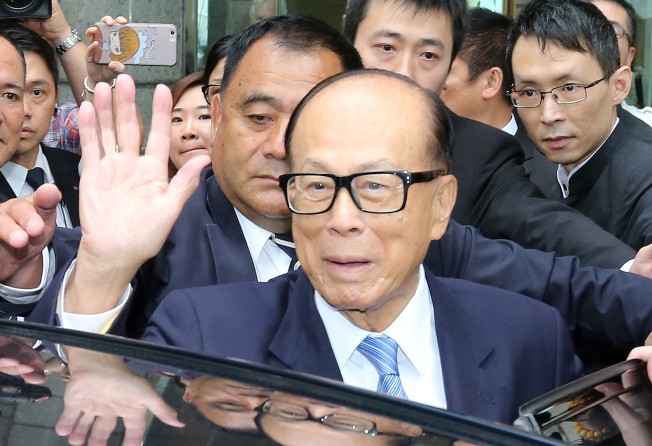Li Ka-shing says he is not a fan of dual-class shares
Hong Kong tycoon says he prefers one share one vote, amid debate over Alibaba-like shares

Li Ka-shing has weighed in on the debate over dual-class share structures that give certain stakeholders a greater say than others and is preferred by technology companies.
“I have always been of the view that one-share-one-vote is better. Many countries have this system,” said Asia’s richest man yesterday after the annual shareholder meeting of CK Hutchison, the revamped entity that now houses all of the Li family’s non-property assets from ports, retail and energy to telecoms and infrastructure.
Li’s remark, which he did not elaborate on, marks a shift of stance from the time the tycoon himself sought to issue shares with super-voting rights.
In 1987, both Cheung Kong and Hutchison Whampoa, along with Jardine Matheson, proposed to issue shares with superior voting power than ordinary shares. Regulators rebuffed their request at the time and no exception has been made since.
The Hong Kong Stock Exchange has proposed to allow a two-tier share structure after losing the Alibaba IPO to New York last year. Such structures give business owners the benefit of controlling the company with less capital, and is preferred by start-up technology firms whose founders often have to sell down their interests early on to raise funds.
Hong Kong Exchanges and Clearing chief executive Charles Li Xiaojia last week said the local market needs to consider measures to make itself an attractive destination for Chinese tech companies looking to delist from the US and return home.
Shareholder activist David Webb said: “It’s nice to hear that Li Ka-shing supports one share one vote. Maybe he now falls into the category of people who have put their money at risk in building their businesses on a one-vote-one-share basis, and who have established pyramid ownerships to maintain control of businesses further down the chain.”
Li, an ace dealmaker, is a master of pyramid structures, which through a cascade of partially owned entities, allows the ultimate holding vehicle to retain control of all the subsidiaries.
“The fact that the controlling shareholder is itself owned by another controlling shareholder doesn’t deviate from the principle of one share one vote. In a pyramid structure, at each level there’s still the same amount of money at risk for each share in the company and for each vote,” Webb said.
“It’s important that people like him do speak out because if we start this [dual-class] system in Hong Kong, we will be on a slippery slope and there’ll be a discount applied to the whole market for the risk those companies will create.”